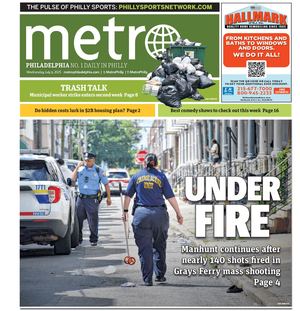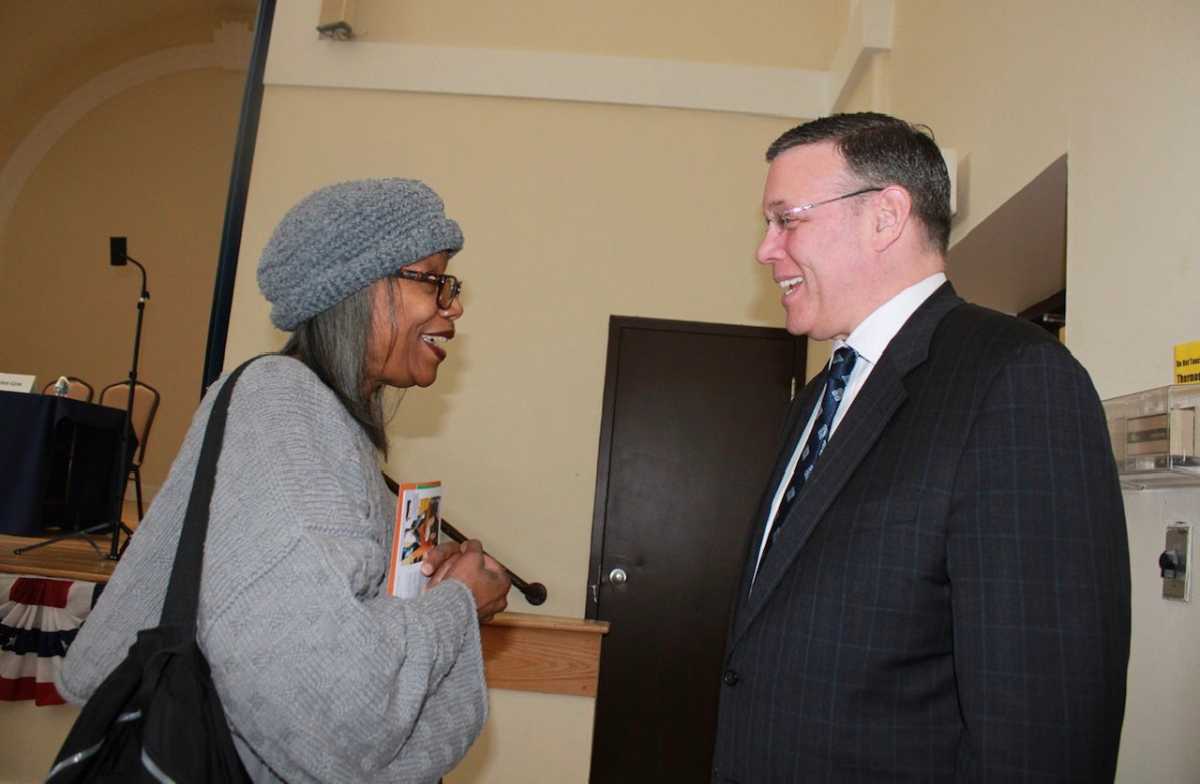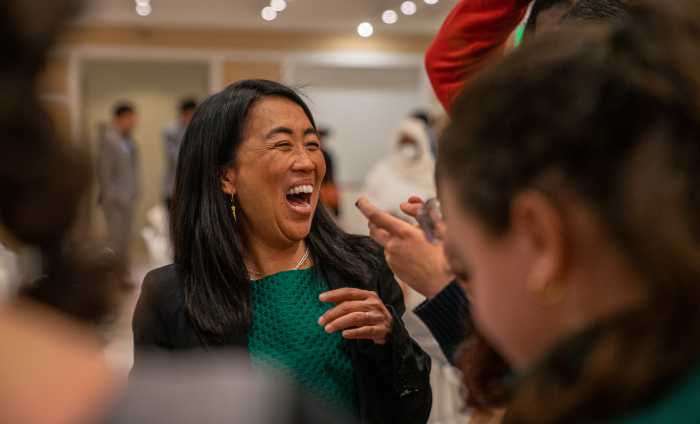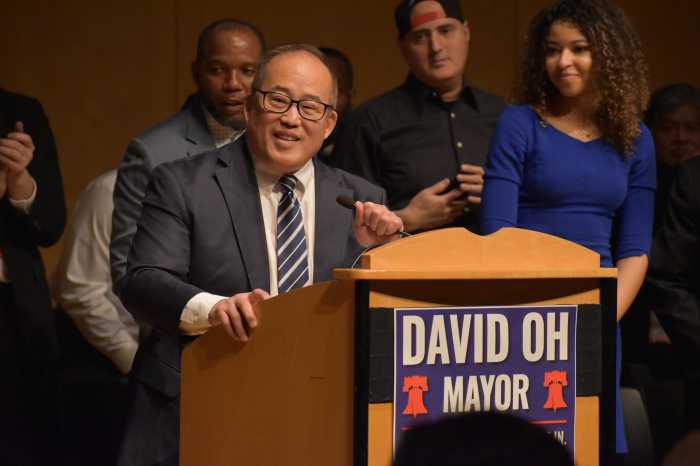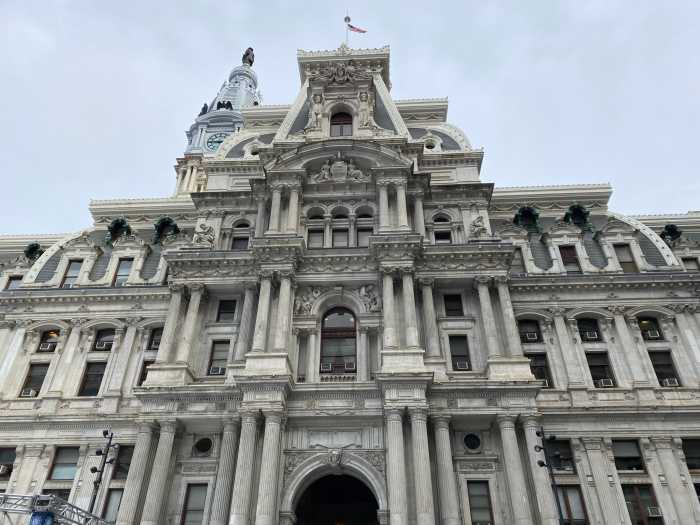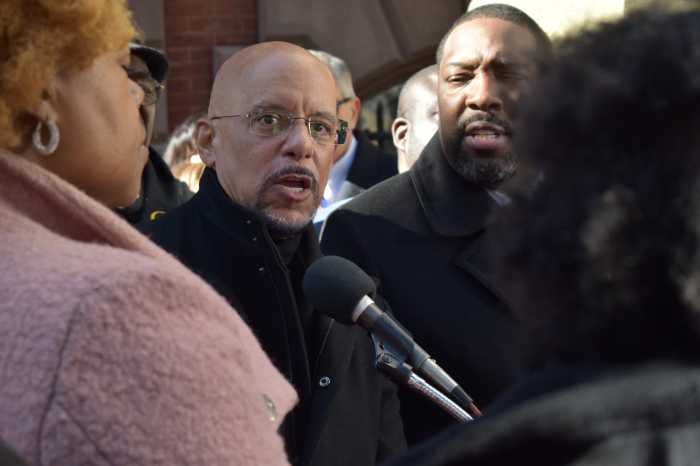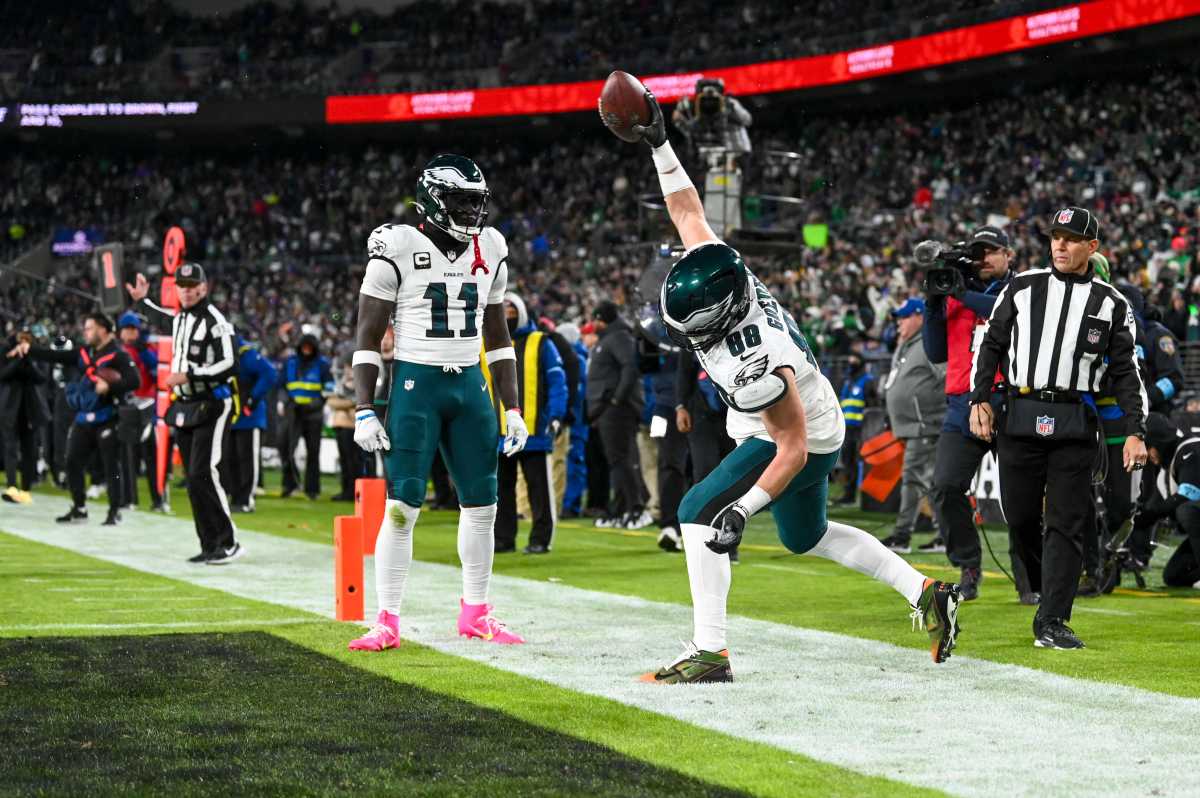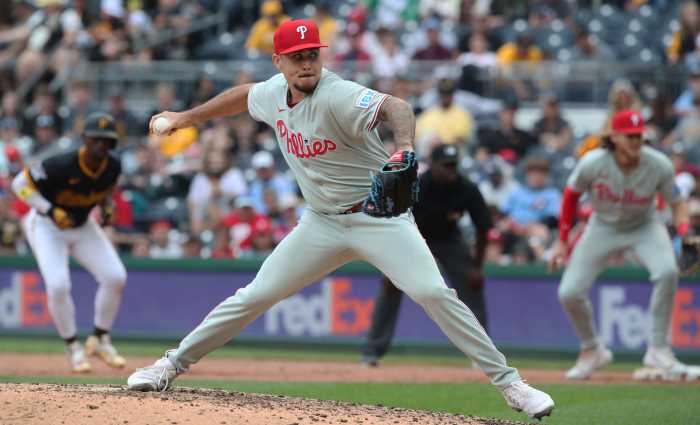Jeff Brown’s career trajectory took a turn after he attended a United Way discussion about health outcomes and the lack of full-service grocery stores in low-income neighborhoods.
The disparities seemed unfair to him, and, as the leader of a chain of supermarkets, he set out to expand the footprint of his stores, with the help of government partnerships and community organizations.
“It really changed me from just sort of being a business person to a person who now runs a business that has to work with all kinds of different constituents we normally wouldn’t have worked with to solve a big problem,” Brown said.
Brown, who lives in the Rittenhouse Square area, now wants to take on a different set of problems – gun violence, struggling schools and other issues facing the city of Philadelphia. He is among the five frontrunners in the May 16 Democratic mayoral primary.
Of those at the top of the pack, he is the only one who has never held elected office. Instead of viewing that lack of experience as a negative, Brown and his supporters have made it central in their pitch to voters.
“I don’t think what’s happening is acceptable to most citizens in Philadelphia,” Brown said during a March interview at his Center City campaign office. “I think that the citizens are saying we need a much bigger change.”
“If you define the job as a proven leader and manager, none of them have my experience,” he added.
Considered an early leader in the field by some observers, Brown’s campaign has hit a few bumps in recent months.
Early advertisements featuring Michelle Obama drew a rebuke from the former first lady’s office, and he apologized after he was caught on video saying the public would “lynch” his opponents if they knew about their corruption.
Then, the city’s Board of Ethics sued For a Better Philadelphia, a super PAC raising money to support Brown, for allegedly violating campaign finance laws. The group agreed to halt its efforts to elect Brown until the case is resolved.
Ernest Garrett, president of AFSCME District Council 33, a union which represents blue-collar municipal workers, said his support for Brown has not wavered due to the various controversies.
“I look at the way they are attacking Jeff Brown,” Garrett told Metro. “They had opportunities in the positions that they held to implement change, to put forth legislation that would have helped city workers.”
Two DC 33 locals – composed of Streets Department employees – split with the larger union to back Cherelle Parker because sanitation workers were offended by Brown’s “pick up the damn trash” campaign slogan.
Garrett suspects internal union politics may have motivated the decision, but he added: “Whatever the reason is, I’ll support it if they are being the voice of the people in sanitation.”
Several other large unions have endorsed Brown, including Transport Workers Local 234, Fraternal Order of Police Lodge 5 and United Food and Commercial Workers Local 1776, whose members work in the Brown family’s stores.
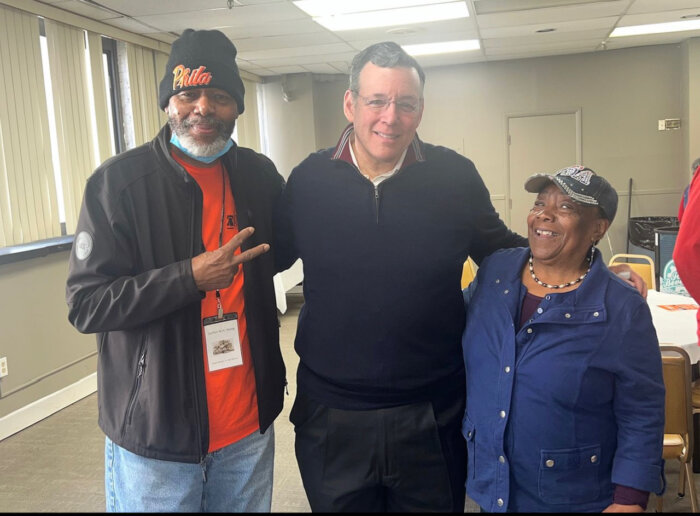
‘The system is crashing’
To combat gun violence, Brown wants to increase police presence by hiring an additional 1,500 officers.
His administration would lower hiring barriers in order to recruit more cadets. Those who fail the physical or reading exams required to be an officer could begin as unarmed members of the force while receiving training to pass the tests, Brown said.
Police department policy forbids officers from patrolling the districts where they live; Brown vowed to change that rule, saying “if you know the neighborhood, I think you’ll do better.”
Brown said he is “very concerned” about the Police Commissioner Danielle Outlaw, but he did not commit to replacing her.
He also supports increasing the number of cameras across the city and investing in recreation centers, libraries, pools and other places with programming for young people.
Brown indicated he thinks he will be able to find common ground with District Attorney Larry Krasner. “I agree on a lot of the reforms he’s done, and I don’t agree on other reforms, and I’ve communicated that with him,” he said.
Philadelphia appoints two members to SEPTA’s board, and Brown said his picks would be outspoken advocates of the authority’s transit police and push for enhanced safety.
“I think right now the system is crashing,” he added. “It’s crashing because of drug usage on the system, filth and violence. From a revenue standpoint, they will not sustain this system if they can’t make it safe.”
He wants to expand career and technical education in the city’s public schools, focusing on jobs that do not require a college degree. Brown believes a long-term capital plan needs to be developed to rebuild a significant number of school buildings.
Four years ago, in a highly publicized incident, Brown closed a West Philadelphia grocery store, with banners blaming the Philadelphia Beverage Tax. However, repealing or altering the tax would not be a high priority for his administration, he said.
Instead, his top concern, from a tax revenue standpoint, is navigating the city finances as federal COVID-19 relief dollars run out and a possible recession looms.
The first tax he would look at is real estate, he said. Brown supports implementing a 5% cap on property tax increases resulting from reassessments. He believes the change would help stem the tide of gentrification.
Later in his term, he may reconsider the soda tax, along with the entire municipal tax system, he said.
‘This would be my only job’
Brown was born in the Northeast, and, growing up, his father operated a grocery store in West Philadelphia.
“He would always take me on the weekends to the grocery store, and that’s really played a big part in my life,” he added.
After graduating from Babson College, a business school in Massachusetts, he worked under his dad, until the elder Brown decided to retire and sold his store. But Brown learned enough that, at age 23, he got back into the grocery business through Shoprite, a regional co-operative of independently-owned stores.
Brown’s Super Stores eventually grew to 12 locations, bearing the Shoprite and Fresh Grocer names.
He and his family moved from the suburbs into the city in 2015, and, during the height of the COVID-19 pandemic, he co-founded the Pennsylvania 30 Day Fund to provide forgivable loans to small businesses.
That led his company to create a small business incubator at its Southwest Philadelphia store, where entrepreneurs could receive advice and run pop-up shops.
Brown said he began to transition out of the business about two years ago, around the time he began considering a mayoral run. His wife and son currently hold leadership roles in the company.
“This would be my only job. I’ll only focus on this,” Brown said. “I’ll have a transparent administration that focuses on the needs of our citizens and not my personal interests.”
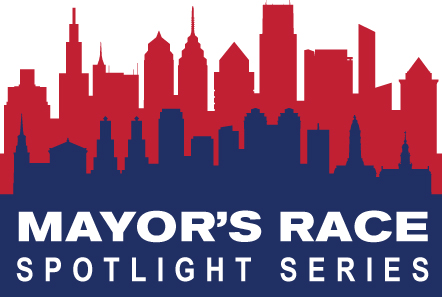
Ahead of Philadelphia’s Mayor’s Race, Metro will spotlight every candidate in the Democratic primary election, which will take place on Tuesday, May 16. Follow our Mayor’s Race Spotlight Series for an in-depth look at the candidates.
